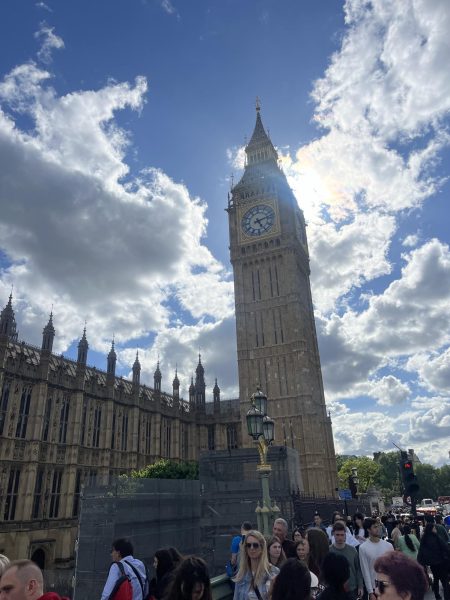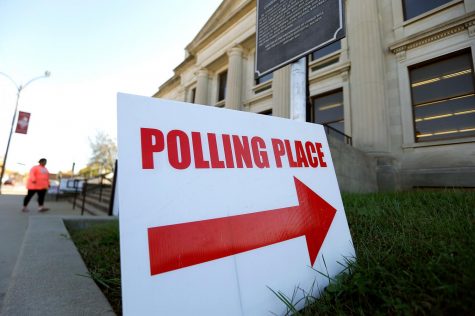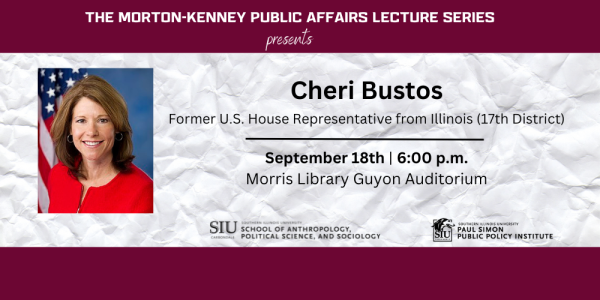Local activists react to new hate crime measure: Lynching added to list of hate crimes
Activists respond as President Biden signed the Emmett Till Anti-Lynching Act into law March 29.
“I am pleased that the federal government has finally made lynching a hate crime, but I am sorry that it took so long and so many tries,” said Cindy Buys, a commissioner for the Illinois Commission on Discrimination and Hate Crimes.
Buys said the first bill to make lynching a federal crime was introduced into Congress more than 100 years ago and it has failed dozens of times over the last century.
Advertisement
She said the latest bill was introduced in 2019 by retiring Illinois congressman Bobby Rush, but it did not receive enough votes in both houses of Congress to pass until recently.
“This is because, prior to the Civil Rights era, anti-lynching bills often died in the Senate due to a lack of support from southern senators where the majority of these lynchings occurred,” Buys said.
The bill was passed unanimously by the U.S. House of Representatives on February 28 and by the U.S. Senate on March 7.
Under federal law, a hate crime is one that is motivated by bias against the victim based on a protected personal characteristic such as race, gender, or religion.
Emmett Till was a fourteen-year-old boy who was abducted, tortured and killed in 1955 in Mississippi by a group of white men after Emmett was accused by a white woman of whistling at her and touching her. The woman later recanted her accusation.
Buys said lynching became a tool to suppress black people, particularly after the Civil War when former slaves were declared free.
“According to a report by Equal Justice Initiative, there were more than 4,000 racially motivated lynchings in the U.S. between 1877 and 1950. These racially-motivated lynchings are a form of vigilantism that threatens the rule of law, Buys said.
Advertisement*
Buys said the Anti-Lynching Act acknowledges a horrific part of U.S. history that we often do not want to talk about and that people need to acknowledge the past to assist in healing and reconciliation. They also need to learn from it and prevent such crimes from happening again.
Illinois Sen. Dick Durbin (D) said the legislation explicitly designates lynching as a hate crime and, while lynching may be yesterday’s issue to many, it reflects one of the darkest chapters in our nation’s past.
Durbin said we should not ignore the reality that at least 56 documented lynchings occurred in Illinois from 1877-1950 and that Till’s history is our history.
Buys said, “Acknowledging the bias of the perpetrator is important to understanding why hate crimes are committed and creating strategies to root out bias and prevent it from causing harm in the future.”
She noted the U.S. still has racially motivated murders today, such as the killing of Ahmaud Arbery in 2020. These present-day racially motivated crimes demonstrate that more work needs to be done, Buys said.
Durbin said this legislation was a reckoning of one of the darkest chapters in our nation’s history and that acknowledging and reflecting on the Jim Crow era is an important aspect of healing and moving forward from the atrocities of the era.
“This legislation is just the beginning. In Congress, we are still fighting for racial equity in the context of voting rights, economic development, health care outcomes, education, and more.” Durbin said.
Buys said she hopes, by acknowledging this terrible past, we can learn from it and move forward to a better future with less bias, hatred and violence.
“The Illinois Commission on Hate Crimes and Discrimination is studying hate crimes and how they can best be prevented. While our work is not complete, I believe that education and training to recognize our biases, learn to respect one another and value our differences is an important part of preventing future hate crimes,” Buys said.
Durbin said across the country, there have continued to be violent, racially-motivated attacks against religious and ethnic minorities and communities of color.
“Last year, President Biden signed the COVID-19 Hate Crimes Act following a spike in hate incidents targeting the Asian American and Pacific Islander community. I was a proud co-sponsor of the legislation, which will improve the Department of Justice (DOJ) and local law enforcement’s response to these hate crimes,” Durbin said.
Buys said she hopes people will take this opportunity to learn more about the history of lynching and other hate crimes and take steps in their communities to proactively address bias and hate in a positive and constructive way to prevent further harm.
Durbin said he hopes U.S. residents will learn about the atrocities of the Jim Crow era and recommit themselves to the civil rights issues of our time.
Buys urged people who want to learn more to participate in public hearings of the Illinois Commission on Hate Crimes and Discrimination.
More information can be found on the group’s website.
Staff reporter Joel Kottman can be reached at [email protected] and on Twitter: @JoelKottman. To stay up to date with all your Southern Illinois news, follow the Daily Egyptian on Facebook and Twitter.
Advertisement













